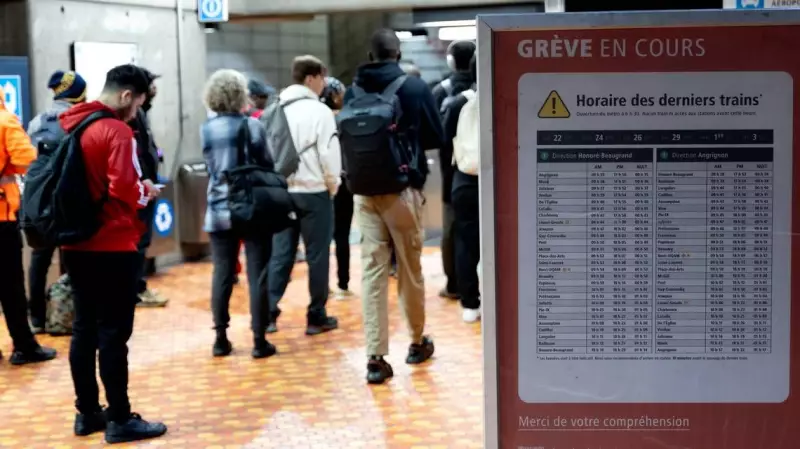
A dramatic labour showdown is unfolding in Montreal as the Quebec government tables new legislation that could prevent a potential strike by thousands of public transit workers. The move has sparked immediate fury from union leaders who accuse the government of undermining collective bargaining rights.
Government Intervention Sparks Union Backlash
The proposed legislation would effectively block strike action by the Syndicat de cheminots et des travailleurs et travailleuses de métiers (SCMTM-Montréal), which represents approximately 2,500 STM maintenance and operational employees. These workers are responsible for keeping Montreal's buses and metro system running safely and efficiently.
Union president Yvan Ducharme didn't mince words, calling the government's move "a direct attack on workers' fundamental rights" and accusing officials of interfering in negotiations that were progressing toward a resolution.
Behind the Labour Dispute
The conflict centers around several key issues that have been simmering for months:
- Wage increases that keep pace with inflation and cost of living
- Improved working conditions and scheduling flexibility
- Job security provisions amid technological changes
- Pension benefits and retirement security
Both sides had been engaged in negotiations, with the union recently securing a strike mandate from its members—a move that typically strengthens their bargaining position. The government's legislative intervention has dramatically changed the dynamics at the bargaining table.
Political Implications and Public Impact
This labour battle extends beyond the negotiating room, with significant consequences for Montreal commuters and Quebec's political landscape. A transit strike would paralyze movement across Canada's second-largest city, affecting:
- Over 1.3 million daily STM users
- Students commuting to schools and universities
- Workers relying on public transportation
- Businesses dependent on customer accessibility
- Tourism and major events across the city
What Happens Next?
The legislation is expected to move quickly through the Quebec National Assembly, where the governing coalition holds a majority. However, union leaders have vowed to fight the bill through legal challenges and potential protest actions.
The situation remains fluid, with the possibility of last-minute negotiations that could avert both the legislation and strike action. Meanwhile, Montreal residents are left wondering whether their daily commute faces imminent disruption as this high-stakes labour drama plays out.
This confrontation represents one of the most significant labour disputes in recent Montreal history, testing the balance between workers' rights and public interest in maintaining essential services.





